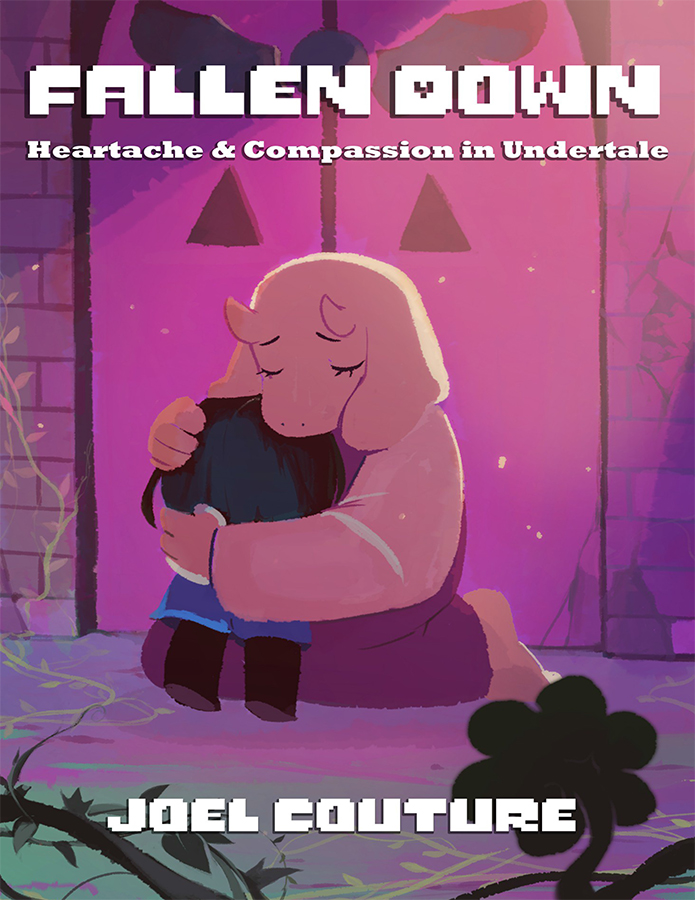 Story: Writer Joel Couture (whose work you may recognize from Siliconera, Gamasutra, and IndieGames.com) ventures into the world of the computer game Undertale, meeting its unique cast of characters under very different circumstances, as the game allows players to remain neutral, take a pacifist stance throughout the game, or go on a blood-soaked “Genocide Run”, killing everything and everyone in sight. It’s the last of these that affects him so profoundly that he admits he may not be able to play Undertale again, and explains why the game’s varying modes of play have had such a seismic effect on him.
Story: Writer Joel Couture (whose work you may recognize from Siliconera, Gamasutra, and IndieGames.com) ventures into the world of the computer game Undertale, meeting its unique cast of characters under very different circumstances, as the game allows players to remain neutral, take a pacifist stance throughout the game, or go on a blood-soaked “Genocide Run”, killing everything and everyone in sight. It’s the last of these that affects him so profoundly that he admits he may not be able to play Undertale again, and explains why the game’s varying modes of play have had such a seismic effect on him.
Review: In the interests of full disclosure, a lot of Undertale goes on under my roof. My oldest is nearly obsessed with it, we’ve both played it, and I’ve given my stamp of approval by way of starting his collection of the Fangamer “Undertale little buddies” figures (of which more another time). So far down the Undertale rabbit hole has my son gone that he’s been working on his own version of the game – except with characters and scenarios of his own creation – programming it entirely in Scratch. We’ve watched YouTube videos that put forth outlandish theories on the origins of wisecracking skeletons Sans and Papyrus, postulating that Undertale may be an offshoot of Mother / Earthbound, and so on. What inspired me to give this game my wholehearted endorsement? The tagline that sells the game – “the RPG where you don’t have to kill anybody!” – scratches the surface: very much like an all-time favorite computer game of mine, Ultima IV, Undertale has a system of morality built into it, holding the player accountable for his actions.
It’s that element of Undertale that Joel Couture homes in on as well. Compared to a globe-spanning game like Ultima IV, Undertale has a limited cast of characters, and avails itself of the opportunity to give each one meaningful and frequently funny personality quirks. Not only do you have skeletons making wisecracks, but you have “guard dogs” who can be disarmed by petting them, a tutorial character who reluctantly turns against the player in an effort to spare them the pain of further adventuring, and numerous other characters with whom there is an option to negotiate peacefully, even if the game’s combat system has kicked in for an imminent fight.
And it’s these personality quirks that haunt the author as he plays the game on a “Genocide Run”, just as a what-if-I-play-it-this-way? exercise, dealing out death to the game’s population just because he can. The author is rattled by his own emotional response to this way of playing the game, because he already knows Sans, Papyrus, Toriel, and the other characters as friends, not enemies or blank-faced NPCs waiting to be dispatched just to boost his XP. I keep bringing up Ultima IV here, and I think the author misses some golden opportunities to contextualize Undertale in light of its antecedents, such as the aforementioned Ultima games, and its contemporaries in other media (HBO’s Westworld revival springs instantly to mind here). The “Genocide Run” may be one of these violent delights with violent ends, but it holds no delight for the author. Indeed, he questions what is happening to us, from a moral standpoint, each time we fire up a video game where large numbers of characters are fated to die. If we’re playing god, are we benevolent or malevolent gods?
Praise is directed at Undertale creator Toby Fox for imbuing his characters with such depths of personality, and for creating a game that holds the player accountable for his or her actions. Undertale, the author points out repeatedly, makes its players feel something – including extreme remorse for killing innocent creatures just out of curiosity, a behavior that would be unthinkable in the real world. So what makes it okay in a video game…or, indeed, is it okay? “Fallen Down” leaves you with a lot to think about, and it’s written in a direct, very affecting way – enough that it made me question my own motivations as a gamer.
This ebook is available in August 2017 exclusively through StoryBundle.
Publication Date: August 2, 2017
Author: Joel Couture
Publisher: StoryBundle
Pages: 93
